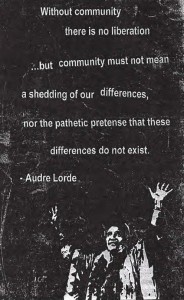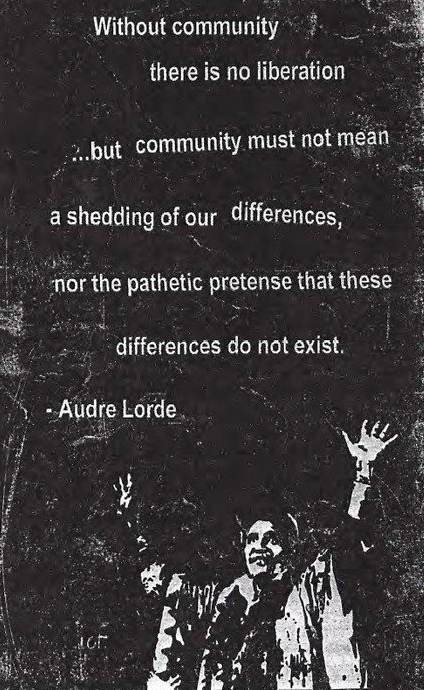 I have been involved in many conversations in my aid and philanthropy career when I have walked away, frustrated and deflated, with a sinking sense of, “They just don’t get it.”
I have been involved in many conversations in my aid and philanthropy career when I have walked away, frustrated and deflated, with a sinking sense of, “They just don’t get it.”
It is certainly a mistake to believe that because we’re all here for the same “cause,” we’re speaking the same language. A discussion earlier this year on LinkedIn, started by Parker Filer, “If NGOs were evaluated by the people they intend to serve, would yours hold up?”, I found to be an example of this.
Parts of the discussion are reproduced with the participants’ gracious permission below. What are your impressions? Are Drew, U.S.-based international relief and development consultant, and Nasira, a Pakistan-based development worker and community-based organization founder, speaking different aid dialects?
***
 Drew Bishop: The challenge has been that accountability, value and success have a plethora of definitions. In the same project, you can have one set of definitions for these words with your donors, a second definition set with the NGO, and a third set for the beneficiaries.
Drew Bishop: The challenge has been that accountability, value and success have a plethora of definitions. In the same project, you can have one set of definitions for these words with your donors, a second definition set with the NGO, and a third set for the beneficiaries.
Even when there is good stakeholder participation and good participatory planning, I have seen the full range of expectations from being content with whatever was given to demanding unrealistic benefits that were not part of what the programme was about.
In many cases, beneficiaries can agree to the program believing it was the first phase of what was coming. Culturally for them you never show your whole hand. So, they would come into the planning process with that worldview. They assume because they approach negotiations with that mindset, the NGO staff do the same. Many struggle to believe that I wasn’t holding anything back when we talked. This was highlighted when I was overseeing reconstruction in Haiti. We agreed on rebuilding budgets; when the local NGO overshot their budget, they assumed I had more funds to give them.
On the other side of the spectrum, I have evaluated projects where the beneficiaries were so grateful to receive any help, they asked for rice seed of a lower quality than they needed to recover from disaster. In my review with the NGO, their records showed, and the beneficiaries confirmed, repeatedly that they were asking for the proper rice seed.
Again, cultural differences got in the way.
 Nasira Habib: Here we are talking about something very complex. Communities are like constituencies without representatives of their realities. Organizations from outside, no matter which tools they use, are unable to have full picture of the problems, needs and issues. There remains a gap between the understanding of the ones who feel the pinch of the shoe and the ones who interpret that pinch. Unfortunately, both lack resources and are forced by the circumstances to engage in the struggle and the tension among these factors.
Nasira Habib: Here we are talking about something very complex. Communities are like constituencies without representatives of their realities. Organizations from outside, no matter which tools they use, are unable to have full picture of the problems, needs and issues. There remains a gap between the understanding of the ones who feel the pinch of the shoe and the ones who interpret that pinch. Unfortunately, both lack resources and are forced by the circumstances to engage in the struggle and the tension among these factors.
The question is how empowered the ‘beneficiaries’ are. Again, it is a top-down approach when condescendingly it is said ‘we’ need to include them in the process of assessment. There needs to be processes in place that empower the local communities to the extent that they themselves question and evaluate. Not all, but the majority of the aid projects have created dependency.
It is important to recognize and learn from one’s failures but are we really learning lessons and converting them in to pro-people programs? There is a danger that talking about failures becomes a fad and further absolves outside organizations of their responsibilities. Who can afford endless learning at the cost of the suffering of people?
 Parker Filer: I want to say that I am very aware of the phenomena Drew and others have observed, of project participants and beneficiaries giving high, even undue and exaggerated praise for nominally effective or unsuccessful projects…out of concern that the will not be considered for future assistance should they be perceived as ungrateful or critical of the donor and/or implementing organization. I will add that this is an awful feeling for an independent evaluator, let alone the well-intended and dedicated project managers and underwriters. I think we would all rather hear that something not going well or working as best it could, rather than receive glowing yet insincere praise.
Parker Filer: I want to say that I am very aware of the phenomena Drew and others have observed, of project participants and beneficiaries giving high, even undue and exaggerated praise for nominally effective or unsuccessful projects…out of concern that the will not be considered for future assistance should they be perceived as ungrateful or critical of the donor and/or implementing organization. I will add that this is an awful feeling for an independent evaluator, let alone the well-intended and dedicated project managers and underwriters. I think we would all rather hear that something not going well or working as best it could, rather than receive glowing yet insincere praise.
I believe there are links between Drew’s first comment about the “plethora of definitions of ‘value’ and ‘success’” leading to inflated expectations; and Nasira’s observation that NGO staff are ultimately outsiders of the community and fundamentally incapable of “feeling the pinch”, perhaps at best being able to “interpret the pinch.” I think these observations are fundamental to the question of empowering the people we serve with a bit more agency in determining how they can best be served or given a “hand-up’ with limited funding and the cultural differences that inevitably occur.
I would like to explore how NGOs can quickly and accurately identify community leaders and local champions that have a conceptual understanding of community needs, NGOs resources and competencies, and the value of M&E to everyone involved in a program. Such an approach represents a challenge to the status quo; however I also think that this area is ripe for investigation and full of possibility that may improve our effectiveness and reduce the “endless learning” that that Nasira pointed out, which NGOs subject themselves to at the expense of the people they aim to serve.
Nasira: @Parker. We need to make a fundamental shift in the way we approach the communities when we make the first intervention. Instead of walking on the easier path of building an alliance with the local elite, it is critical to tread on the comparatively challenging path of making inroads with the people who need the outside support and whom the development programs are meant for. Even a cursory glance at the formation the famous Community-Based Organizations (CBOs) launched by the international development programs and organizations suffices to prove that CBOs strengthen the existing village power structures and thus the very [CBOs] that were meant to serve the disempowered go against them. Because the under-privileged and the disadvantaged have already suffered at the hands of the ones who enjoy power and resources, they are very skeptical, in the beginning, of the intentions of outside interventions. It requires some patience and result-oriented, pro-poor work to win their trust. The first alliance in any given community has to be with the people any development project plans and aspires to serve.
We must not underestimate the capability of the communities to conceptually understand the local needs. I find them better thinkers and every community has one or two philosophers. The only difference is that their analysis does not use the same jargon the development world is used to. Instead of understanding their language and expression, which is a better expression of their realities, we demand from them to use our set of terminology without making an effort to make it palatable for them. The very terminology becomes a great barrier and an intimidating factor for them. NGOs have to be more transparent about the resources at their disposal and the competencies they possess. A huge factor behind the increasing distrust on NGOs is not being sufficiently transparent.
If we do the [work] outlined above, the features of the kind of assessment you have talked about would start emerging without taking much time. There would be takers of local leadership very soon. But it requires a process that would often be [considered] “painstaking” for the players who come from outside of the community.
Drew: @Nasira, Having worked with CBOs and trained CBO leadership at grassroots level in both Africa and Asia, I would ask for examples instead of blanket generalities. It would seem you have personal experience in what you are saying. What is that? As has been pointed out in this thread, the NGO community is very big. You will find in this community NGOs that are very transparent and those that are not. You’ll also find local communities that are very open to an NGO about their needs and others who will deceive an NGO, distorting its needs to take advantage of good NGOs.
In this discussion, we need to be careful that we do not lump everyone into a “naughty” or “nice” category. It does not serve proper justice to do so.
Nasira: @Drew, Yes, I agree. There are NGOs who are doing excellent and extraordinary work but my comment was about the modus operandi of the majority of the programs and organizations. You wanted me to give specific examples. I would say my earlier comment applies to all large-scale programs like Social Action Program and others in Pakistan who launched and trained thousands and thousands of CBOs in a matter of weeks. Institutionalizing local governance of development requires a process of dialogue, action, reflection and action again. Another very specific example is the launching of thousands of school management committees or school councils in Pakistan with the objective of improving the status of education with participation of the local communities in governing the affairs of the schools. You might be interested to read the situation analysis of school councils in five districts of Pakistan here. Water users’ associations also have token presence. NGOs and INGOs participated in all such programs in a big way.
Having stated all this, I would like to stress that my comments do not aim to undermine the work being done by NGOs. They invite soul searching that can result in re-planning and re-strategizing.
I was not glorifying or romanticizing communities. I know from my experience of over twenty years of working with them that they are complex compositions. Dealing with a wide variety of human minds and hearts throws a huge challenge. One is bound to face all kinds of situations but the end result depends on how focused we are on understanding the life of the have-nots, on creating a synergy between their understanding and our analysis, on strategizing and re-strategizing, and on finding a common ground for action.
***
Related Posts
A new kind of aid donor: Four things they do differently
The Case of the Missing Tomato Cages

